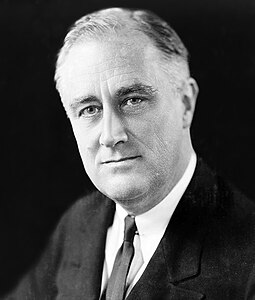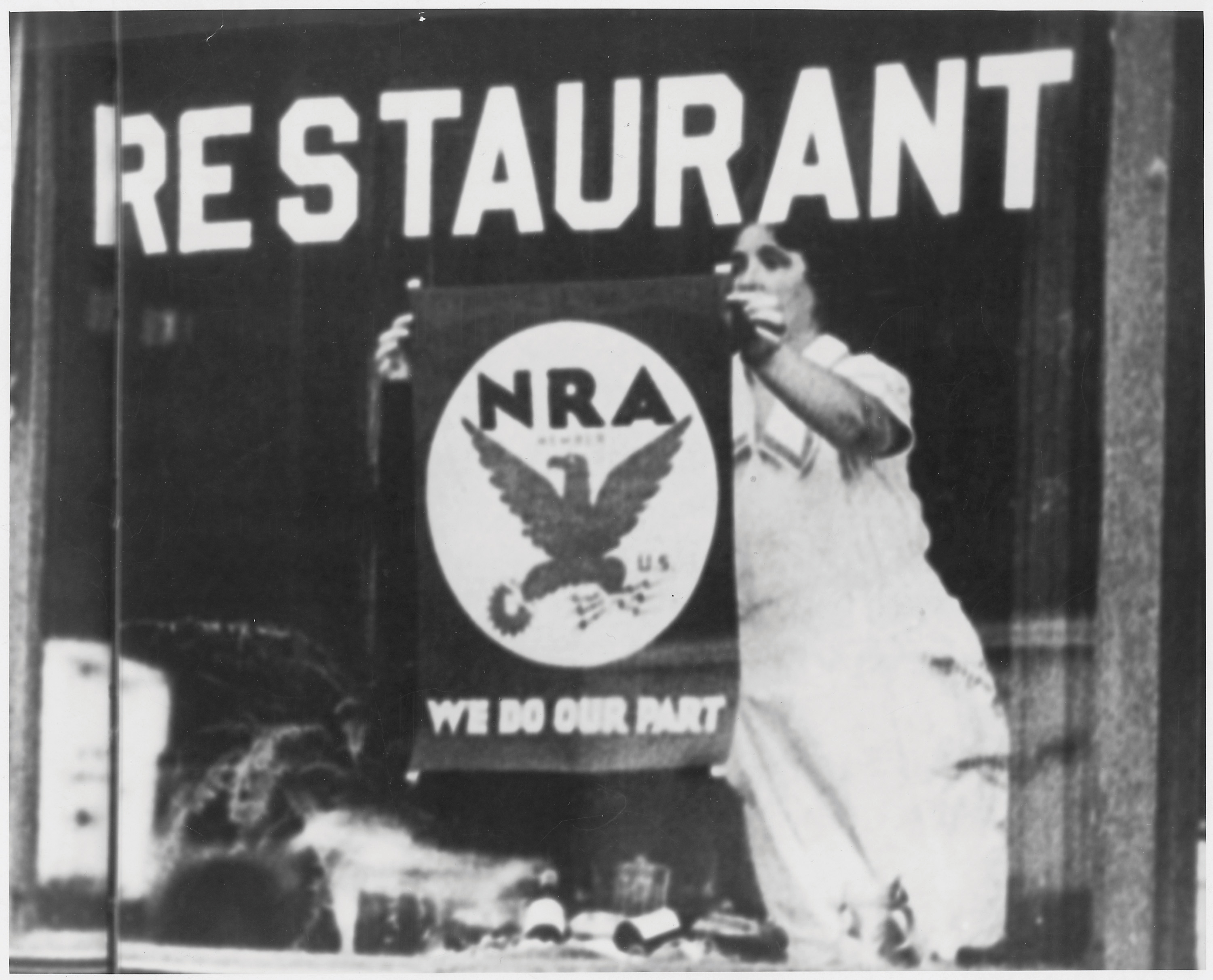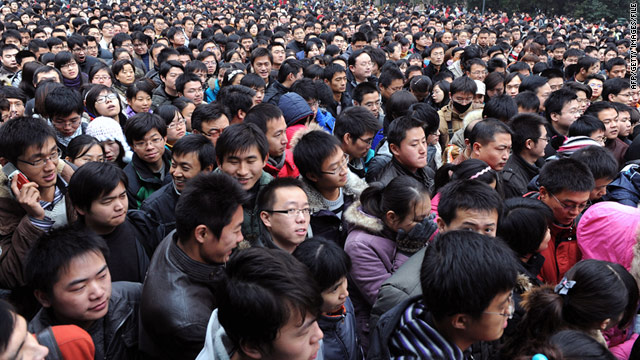 |
| Basically Garner was stuck between a Roosevelt and a White House. Okay, so my attempt to change a popular saying didn't work. What do you expect? |
The Republicans, on the other hand, had Wendell Willkie for Presidential candidate, with Thomas E. Dewey as Vice President. A businessman who had never run for office before, he was against government run businesses like the Tennessee Valley Authority, but supported other New Deal programs like Social Security, and was an advocate for military preparedness and sending "all aid short of war" to Great Britain to fight the Nazi's. While a Wall Street capitalist and a Republican, both of whom many people still saw as the main cause of the Great Depression, Willkie was an energetic and forceful campaigner, one who capitalized on the best aspects of the New Deal and strengthening the American homeland against any possible outside threat. When Garner made a slip at a campaign event that he was willing to scrap parts of the New Deal, the public shock was enough to have most of them through their support behind Willkie. Even FDR, in a private letter that remained unpublished until 1989, said that "I'd rather vote Republican than Garner now."
On election day, 52% of the vote went to Willkie and 338 electoral votes, having gained a large number of New Deal liberals when he said that he would expand some New Deal programs that the private sector couldn't manage. The House of Representatives and Senate were still Democrat as many congressional candidates continued to support the New Deal. Observer's mentioned that the 1940 US Presidential Election was the "New Deal Election," and it was clear that most Americans wanted the New Deal to continue.
 |
| Just, you know, up until the 1980s when Reagan came in... |
President Willkie began a major overhaul of the New Deal in the first few months of office, working with the Democratic Congress. While programs like Social Security, Civilian Conservation Corps and the Securities and Exchange Commission where left in place, some like the TVA were spun off as independent corporations or wound down early. However, Willkie was soon confronted with Foreign policy issues, such as the Nazi invasion of the Soviet Union, the Blitz on England, the sinking of American ships by U-boats, and an increasingly belligerent Japan. Willkie did agree to a "Lend-Lease" program to Britain and China to send war materials to the beleaguered powers, but when the Nazi's invaded the USSR, he didn't extend the offer to Moscow. The attack on Pearl Harbor on December 7, 1941, brought the US into the war, and now Willkie was leading the US straight into World War Two.
While the US and the UK were allies, Wendell Willkie and Winston Churchill had a tense relationship, mostly due to Willkie's plan to focus on Japan first rather than the Nazi's, leaving the UK and the USSR to fight Nazi Germany alone. The plan faced major setbacks when Japan won victory after victory against the US, British and other European forces. After a draw at the Battle of Midway, the US's industrial potential began to weigh into the war, with more ships, planes, guns and tanks being sent and turn the tide of the war, with a leap-frog campaign of battles over the many Pacific Islands eventually leading to the bloody invasion of Japan itself, Operation Downfall, by January 1945. The bloody invasion finally lead to the capture of the Emperor, Prime Minister Togo and other high ranking Japanese officers, and the unconditional surrender of Japan. A long, brutal occupation of Japan that saw many of the major industries broken up, soldiers executed, and constant guerilla war, until a new Japanese Republic was established in 1954.
 |
| It's easy to rebuild when there is nothing left... |
The calls by Joseph Stalin to open a second front in Europe was resisted by Willkie for years, and the British were confined to small raids, the battle in North Africa, and a struggling offensive in Italy. But the death of Adolf Hitler in an air raid in August 1945 as he and the Nazi hierarchy pulled out of Berlin and headed west was a signal of the end. While American troops were being sent to reinforce and prepare to invade France in 1946, Soviet forces broke through the collapsing Nazi Lines, and reached the Rhine River just as a hasty invasion by the few British and American troops finally landed at Normandy, to open arms by Nazi and French resistance alike.
In the post war world, with all of Germany occupied by the Soviets, and only France, the Low Countries, and Italy in the hands of the Allies, the Cold War began. The atomic bomb project, begun only in 1945 in the US when the war was nearly over (and after it was finally proven that the Nazi's and Japanese were both working on similar projects to convince a skeptical, business minded Willkie) was tested in 1949 in New Mexico, leading to the start of a new arms race between the US and USSR. China, on the other hand, was able to defeat Mao's Chinese Communists, and the Republic of China was established as a strong ally to the US, though the "Republic" thing isn't exactly a great monicker of what the one-party, nearly dictatorial China was like.
 |
| Because "bringing democracy" isn't easy in a country with 1.4 billion people. |
PS:
So I've decided to change this up a little bit, at least for the month of November while I do NaNoWriMo. Instead of a long, explained scenario, I'm just going to do some shorter, one shot ideas. I'm hoping they won't be too long, and mostly as something to keep me working on this while also writing a 50,000 word novel. Anyway, hope you enjoy!
But what do you think? What would happen if FDR never made it to Term 3? Or if you have a topic or idea you would like me to talk about, please leave comments below, email me at tbguy1992@gmail.com, or tell me on Twitter @tbguy1992.
No comments:
Post a Comment